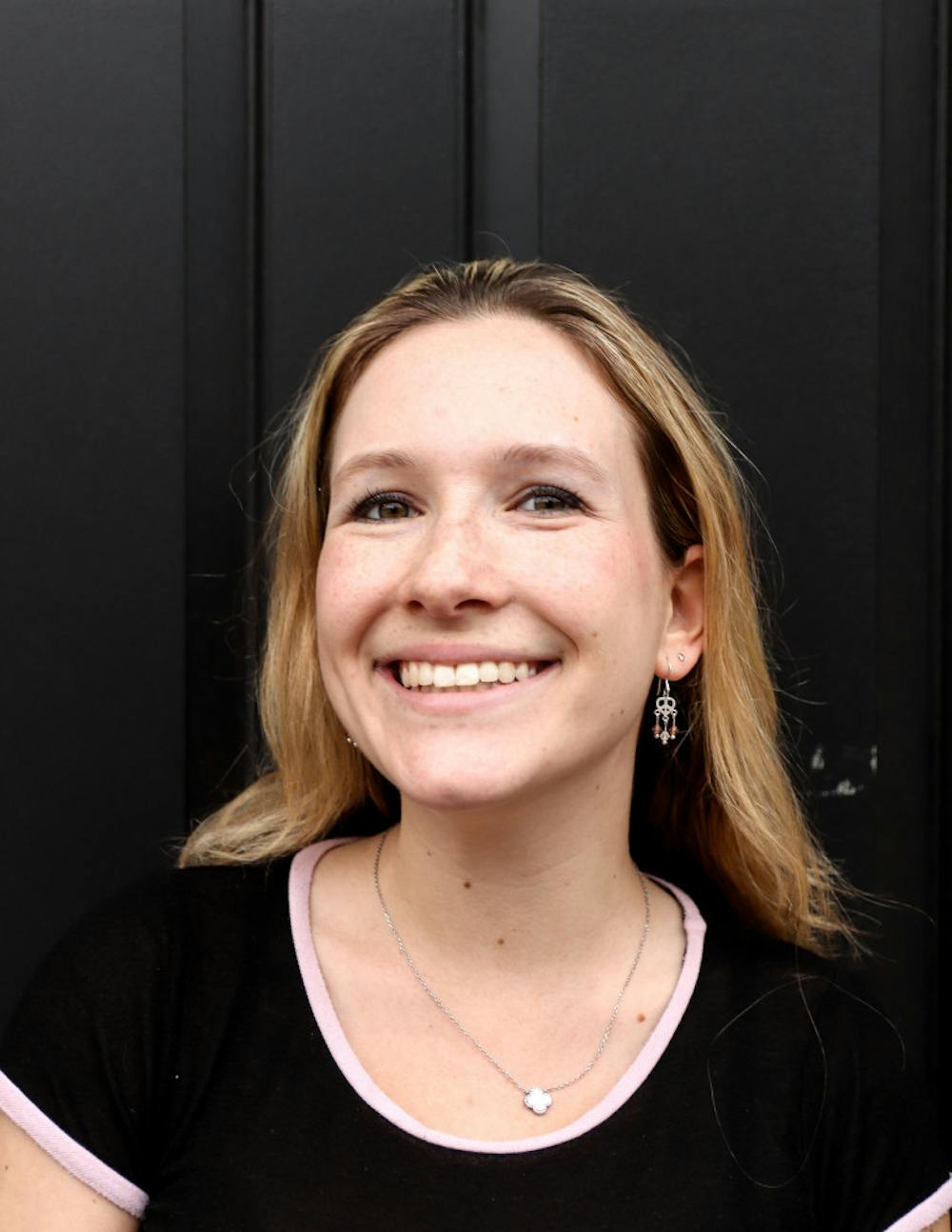Gertrude Stein has watched over me for the past four years. Or more specifically, her words, etched into the English department building at 70 Brown St., have: “And then there is using everything.”
They’ve watched me run to Smith-Buonanno Hall on Tuesdays and Thursdays and Shabbat dinners on Fridays. They’ve patiently overseen treks to Page-Robinson Hall to pick up promotional mail and knowingly witnessed interactions at Faunce Arch, where I’ve promised old friends that I’ll “totally text them about coffee after the weekend.” Of course, they’ve monitored trips in and out of thesis advisor meetings, gawking in disbelief when I showed up in mid-April, with bound copies in hand.
The meaning of this quotation was obvious for my first three years on College Hill. Take all the classes, join all the clubs, meet all the people. Read Today@Brown, for god’s sake. Use all the resources Brown has to offer, not only because we are so lucky to be here, but because the philosophy of liberal learning says so. Like many of my fellow classmates, I obliged, marking myself “Going” — or at the very least, “Interested” — to every Facebook event that came my way. The question that always energized me was: Am I doing enough? Or more importantly: When I look back on my time in college, will I remember myself as having done enough?
As I prepare to leave Brown, this question is no longer theoretical. Lately, it has seemed critical that I am able to tell myself that, yes, I did it all. The main problem is, I didn’t. I didn’t go to the Ladd Observatory or play on an intramural team or take an Egyptology class. I didn’t join that group or organize that event or see that performance. I didn’t even do most of the readings. But maybe this quotation, this idea of “using everything,” has nothing to do with how much we utilized shopping period or office hours. Rather, it might teach us how to move on from Brown: by using the outline we’ve created of ourselves here to guide our next step.
It is now, as we leave, that we are meant to “use everything.” It’s about taking what we got here and who we were and what we did and using it all. If I don’t remember the exact concepts I taught as a psychology teaching assistant, I’ll remember the patience it takes to communicate an idea to someone else. If I don’t remember what texts I read for my thesis, I’ll remember what tools I need to drive a personal project, both organizationally and mentally. And if I don’t remember whether it was in the fall or spring that I would lie on the Main Green, eyes closed and listening to the sounds of Frisbee and tour groups and skateboards rolling on the cement, I’ll remember how meaningful it can be to take a day off.
Because the truth is, the open curriculum was never that open. Our class schedules were always structured by passions and paths that guided us to take this over that. My love for literature dictated 90 percent of my own courses every semester. In the same way, the next phase of our lives will be guided by everything we experienced here, whether or not individual details will survive.
Of course, some individual episodes do stand out, and they aren’t even the ones that taught me a productive skill or life lesson. Like the things that happened that only make “college sense” — the decisions that were effortless at the time but inexplicable in retrospect. Spending the time between a 10 a.m. and a 2 p.m. class saying it’d be pointless to do work for only a few hours, but then staying up all night to finish an essay. Walking 20 minutes to an obscure building for free pizza, even though it’s May and you have 140 meal credits left. Or that morning sophomore year when I woke up and couldn’t go back to sleep, and even though it was 6 a.m. and a weekend, I felt weirdly energized to walk to the Main Green. When I got back to Wriston Quad, I realized that I had forgotten my ID card — something that happened at least once a day that year. As I laid outside my dorm, waiting for someone to eventually wake up and open the door, I remember thinking about how nice it was to feel a part of this place. How, even when I was locked out of my room, I was still a part of this place. I was a part of this campus and this community and this experience of being here from the fall of 2015 to now.
My biggest hope for my next step is that I find this feeling again, of not only knowing and belonging to a place but becoming a part of it. But I’m pretty confident that this is one of the things I’ll be bringing with me after Brown: the ability to recognize that feeling again and the wisdom to hold onto it. Stein champions the “continuous present,” the notion that things begin again and again. I think this isn’t the last of my time at Brown; it will come with me wherever I go.





